SUMMARY
This is AI generated summarization, which may have errors. For context, always refer to the full article.
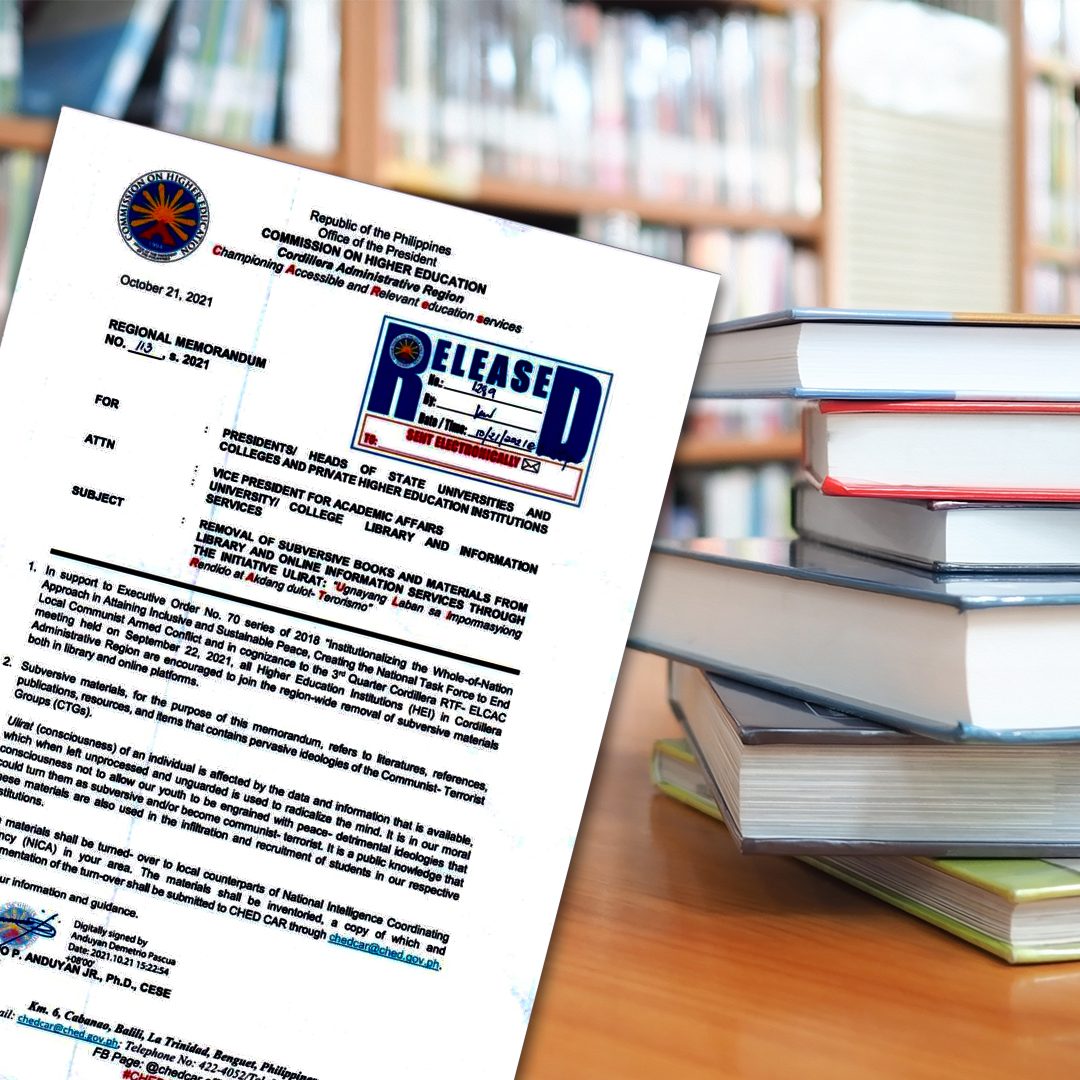
The Commission on Higher Education in the Cordillera Administrative Region (CHED-CAR) has joined the campaign to purge universities and colleges in the region of what it considered “subversive” materials.
CHED-CAR Director Demetrio Anduyan Jr. urged private and public higher education institutions (HEIs) in the region to remove “subversive” materials from their libraries and online information services.
Regional Memorandum 113, series of 2021, released by the office on October 21, said the call supports President Rodrigo Duterte’s Executive Order No. 70. The President’s issuance institutionalized the whole-of-nation approach and created the National Taskforce to End Local Communist Armed Conflict (NTF-ELCAC) to combat communist rebellion.
Students, academics, and rights advocates likened the order to Nazi tactics that preceded the mass murder of Jews in what is now known as the Holocaust.
Dubbed as Ugnayang Laban sa Impormasyong Rendido at Akdang Dulot-Terorismo (ULIRAT), the initiative is part of the actions conceived during September 22 Cordillera ELCAC task force meeting.
The memo defined subversive materials as “literatures, references, publications, resources, and items that contain pervasive ideologies of the Communist-Terrorist Groups (CTGs).”
Exposure to such data and information affects individuals’ consciousness, the CHED-CAR claimed. “Left unprocessed and unguarded,” these materials may “radicalize the mind,” it added.
“It is our moral consciousness not to allow our youth to be engrained with peace-detrimental ideologies that could turn them as subversive and become communist-terrorist. It is a public knowledge that these materials are also used in the infiltration and recruitment of students in our respective institutions,” the memorandum said.
Anduyan directed school officials to surrender the materials to the National Intelligence Coordinating Agency (NICA). They are also required to submit to his office an inventory of the turned-over items.
The order came a month after the Kalinga State University in Tabuk City removed publications related to the peace talks between the Philippine government and the National Democratic Front of the Philippines (NDFP) from its library at the behest of the military and the local ELCAC body. Two other state universities, the Isabela State University and Aklan State University, did the same in cooperation with members of the government’s security agencies.
Infringement on academic freedom
Former University of the Cordilleras president and First Quarter Storm activist Ray Salvosa said the memorandum is an attack on academic freedom and follows the 1970s strategy of the late dictator Ferdinand Marco during Martial Law.
“To me, these [readings] are important because this is how you learn. This is how you compare, this is how you act – you analyze issues, you get exposed to everything,” he said.
The former UC president stressed that “the search for truth should not have any blindfolds or limits imposed on it.”
In the academe, he said, authorities should be presenting all sides. “When an institution decides what you can and cannot read, that is the same thing as telling you what you can or cannot think about.”
As a professor of political science, he said it would be difficult to understand political philosophy without teaching Karl Marx’s Das Kapital, the books of Vladimir Lenin, Mao Zedong, and those written by Jose Maria Sison on the Philippines.
“The reasons why we have an education system [is that the individual] has to be able to think for himself: what is true, what is right, what is wrong. And [these] are the reasons why [what you can read] in these critical times is important,” he added.
University of the Philippines Baguio Student Council chairperson Cheska Kapunan said CHED-CAR’s order was disappointing but did not come as a surprise.
“CHED-CAR previously sent invitations to a supposedly youth for peace convergence orientation, which turned out to be a red-tagging forum. At that forum, representatives of the RTF-ELCAC demonized the works of Marx, Lenin, and Mao, foolishly claiming they were poisoning the minds of the youth,” she said in a mix of English and Filipino.
Even without naming the books and materials, Kapunan believes the commission’s directive pertains to the same works mentioned by the anti-communist task force, including those authored by local thinkers like Communist Party of the Philippines founder Sison.
“Social sciences students study these works because they helps us [develop] a comprehensive understanding of the world. These should not be prohibited,” she added.
She underscored that learning institutions should have the freedom “to pursue knowledge without fear of repression or punitive action.”
“Students should have the freedom to explore different perspectives, ask questions, and formulate solutions. Censorship, book-purging, and the hampering of critical thinking has no place in the university,” Kapunan added.
‘Strike three’
Kabataan Party-list Cordillera coordinator Louise Montenegro said the memorandum “marks strike 3 for the agency,” citing its earlier activities that drew flak from youth and human rights groups.
Earlier, CHED-CAR came under fire for organizing a forum with the Cordillera RTF-ELCAC that turned into a red-tagging session, traumatizing students who participated in the activity.
The office again drew criticism after inviting Sandro Marcos, the grandson of the late dictator Ferdinand Marcos, to be an “inspirational speaker” in a youth seminar.
“Now, this Nazi-style purge of ‘subversive books’ in schools. This is no mere ‘obedience to authority.’ It is an insult to the academic community, an assault to academic freedom, and the right to holistic learning from different schools of thought,” Montenegro said.
“Banning these books aims to spark fear, and is reminiscent of the Martial Law censorship [meant] to inculcate state propaganda that the mention of human rights and social reform are ‘terrorism.’”
She stressed that students could think and process information for themselves, contrary to what CHED-CAR’s memorandum wants to paint about the youth being easily swayed by reading materials.
“Removing these books only fuels terrorist-tagging of critical students and organizations, and we urge CHED-CAR and involved agencies to focus instead on the safe reopening of face-to-face classes,” Montenegro said.
Similar to Nazi censorship
Salvosa, discussing the rise of Germany’s Nazi’s just before the outbreak of World War II, said the national socialists led by Hitler pillaged public libraries, universities, and bookshops for materials written by “subversive” authors.
After the destruction of books came the purging of the individuals on the Nazi’s blacklist, he pointed out. “It was not long before the regime that started burning books ended up burning people.”
Different groups have earlier made the same comparison after the three state universities removed learning materials from their libraries, including the Comprehensive Agreement on Respect for Human Rights and International Humanitarian Law (CARHRIHL).
Signed on March 16, 1998, the international community hailed CARHRIHL as a landmark agreement and an outstanding achievement of the GRP-NDFP peace negotiations.
Other books removed from the libraries were the NDFP’s Declaration of Undertaking of the Geneva Conventions of 1949 and Protocol 1 of 1977; the Declaration and Program of Action for the Rights, Protection, and Welfare of Children; and compilations of significant agreements, joint statements between the GRP-NDFP from September 1, 1980 to June 2018, and essays of NDFP chief political consultant Sison, among others.
The group Academics Unite for Democracy and Human Rights launched an online signature campaign on October 2 against what it considers as “an attack on the very heart of the University itself.”
“As the government further escalates its campaign, the attack on academic freedom has recently taken on another extremely palpable and ominous form. Books and the libraries which house them have now become targets,” the petition said.
The Citizens’ Alliance for Just Peace (CAJP) also expressed concern that removing peace talks materials from schools would cultivate “a harmful mindset in which peace negotiations as a means to end the armed conflict is considered anathema.”
The group said that expunging publications and essays on the social roots of the armed conflict is reminiscent of the banning of Jose Rizal’s political novels by the church and Spanish colonial government.
“In the guise of ‘protecting youth and students from being deceived and recruited by communists,’ the NTF-ELCAC is actually stifling critical thought and open-minded study into the socio-economic roots of armed conflict,” the CAJP said. – Rappler.com
Sherwin de Vera is a Luzon-based journalist and an awardee of the Aries Rufo Journalism Fellowship.
Add a comment
How does this make you feel?

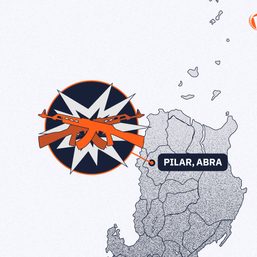
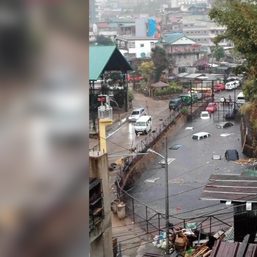

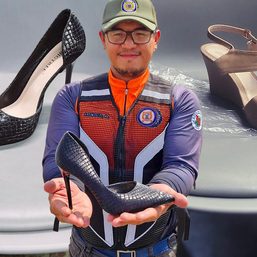
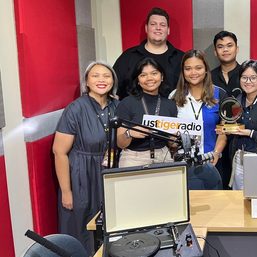
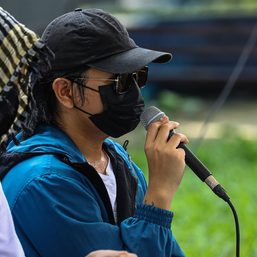
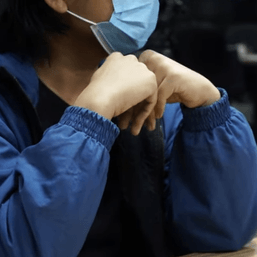
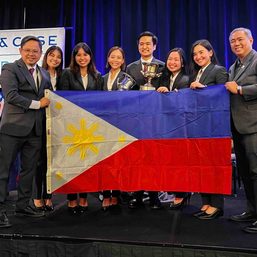
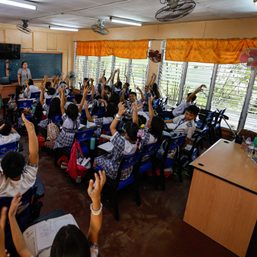
There are no comments yet. Add your comment to start the conversation.